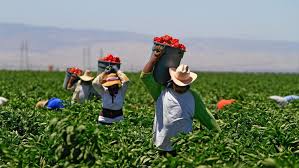
A city in California is including farmworkers among those who must receive hazard pay for the risks they are enduring during the COVID-19 pandemic. Coachella, a Southern California city known for its popular annual music festival, passed an ordinance this week which requires retail pharmacies, grocery stores, restaurants, and agricultural businesses in the city to provide additional compensation to their workers given the threat they face from COVID-19.
Under the ordinance, businesses that employ more than 300 people nationally or more than five people in the city will have to pay their workers an additional $4 an hour for at least 120 days. The regulation would also prevent businesses from retaliating against workers by limiting or reducing their pay.
Coachella is along several other cities on the West Coast that have required grocery stores to reinstate hazard pay for employees in recent weeks, months after it ended for most workers. However, the city of Coachella is unique in extending that requirement to agricultural workers as well; it is home to about 8,000 agricultural workers of whom the majority are Latino and who have been the most affected by the COVID-19 crisis.
On the other hand, there were some who opposed to the new measure, including the California Grocers Association, the California Restaurant Association, the California Retailers Association, and several others, who argued that businesses were already struggling financially. The increased pay requirements could potentially force them to increase prices, cut jobs or shutter locations.
Joe Pezzini, CEO of Ocean Mist Farm stated, “Like all businesses during this pandemic, it’s been a huge economic strain keeping things going. It’s unwise to add another financial burden to already struggling businesses.” Pezzini further argued that if the council’s intent is to protect farm workers, it should instead make testing and vaccine widely available to them.
Mayor Hernandez expressed that while he supported the new measure to give essential workers extra compensation, he was also concerned about the unintended consequences it could have on workers and businesses. He suggested that the city should step in to provide aid if farms, or store owners had to close their doors.
“I made the point yesterday that we have to think of unintended consequences and be ready as a council to respond to them. We have to make sure that in the event farms close, hour gets reduced, and/or farmers go broke- we can help” said Hernandez. But some council members maintained that the ordinance was intended to benefit the most vulnerable populations.
Councilwoman Beaman- Jacinto stated, “The agricultural industry, which of course is going to face a financial impact if this hero pay passes, has always been opposed to any advances in pay or other protections for farm workers. We can’t let that silence the voices and needs of our residents that we heard tonight.”